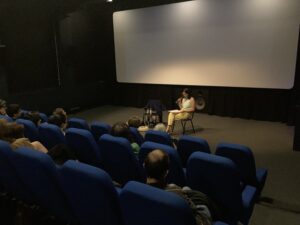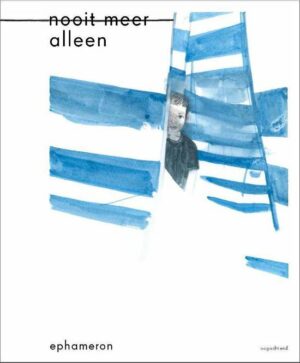
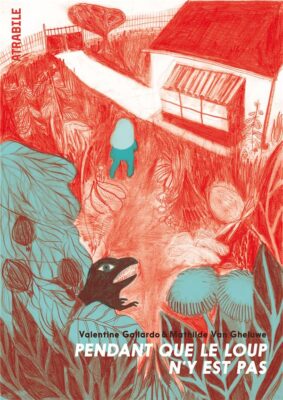

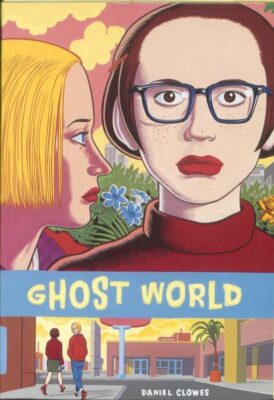
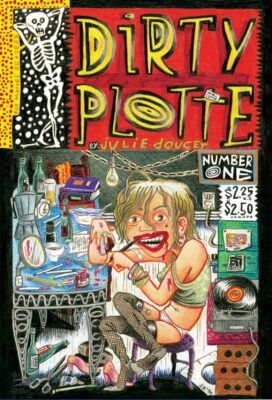
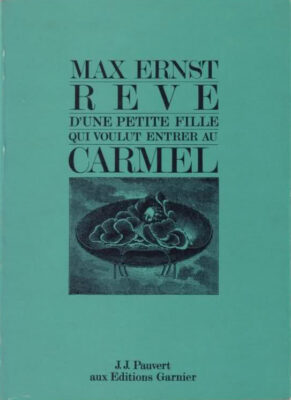
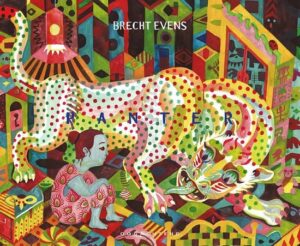
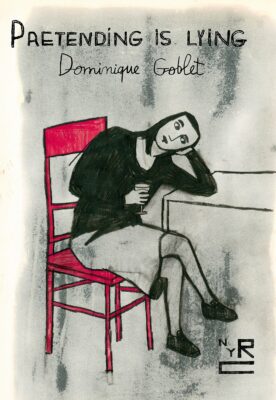
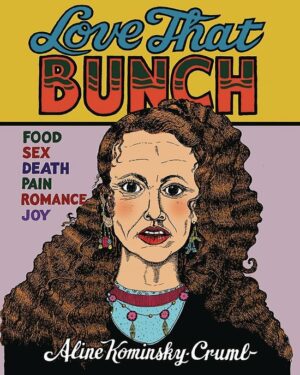
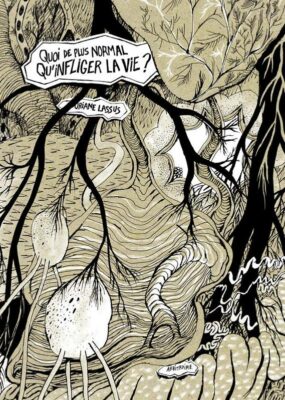
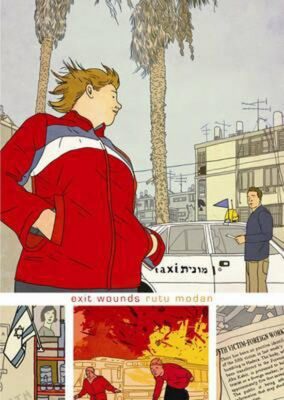
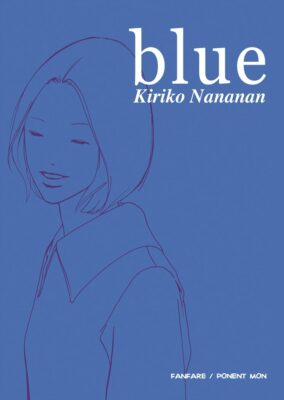
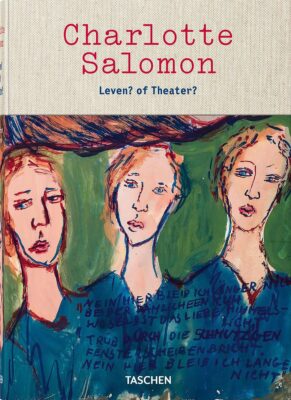
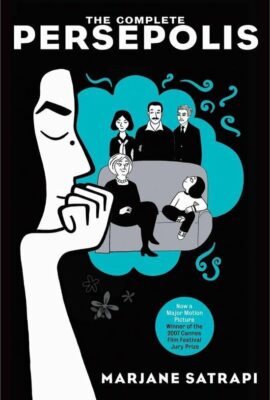
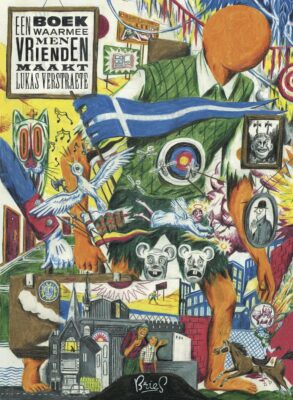















In recent years several forms of feminism have flared up and found a broader audience. Questions concerning gender, female positions and womanhood come with various contexts and discourses. How is femininity represented, discussed about and focused upon within zines, comics and graphic novels? What does this teach us? We are curious to see how a low-key comics and zines reading club, a few workshops and a handful of lectures could stimulate and direct us in our various practices. Whether you are an artist, student, researcher, (avid) reader, or just mildly interested, you are very welcome to join the reading club in whichever language you prefer.
We will approach the subject of femininity through 7 subthemes: growth, poetics, roles & clichés, sublimation, connections, the Feminine, and fear & challenges. You are welcome to join a group based on your availabilities and needs (see ‘practical’ for more info). Each group will function (mostly) independently, meeting at your own convenience. Throughout the year we will host several events where all the groups can read together, browse through personal zine archives, chat and discuss ideas over a drink, attend a workshop, or just hang back and enjoy the atmosphere. At the end of the year, we hope to bring together all the reading groups once more to share
the reading groups are no longer active
You are welcome to join the type of group that suits your needs best:
When, where and how often you come together is up to you as a group to decide. Communication will mostly happen through Whatsapp, that’s why we ask for your phone number.
Some thoughts:
You don’t have to read the same books at the same time. You can, but you don’t have to.
The reading lists are only indicative and prone to blind spots; please feel free to bring books and zines from your personal collections.
If it feels good, you can share your personal work (writing, art, music, anything!) with your group.
Growths within but also growths without. Changes outside and inside – one’s mind, one’s body, one’s gender, sexuality, subjectivity or social surroundings. Subtly or more explicitly, these books tackle issues that deal with major or minor evolutions, often on the threshold of what’s conceived as internal and external, but also blurring these boundaries. We are speaking of pregnancies or the renouncement thereof, recounting girls becoming adults (whether woman, man or otherwise), characters overcoming trauma and people growing out of hardships.
These are books that venture into other ways of telling, other ways of showing. Does the crossing of graphic storytelling with the specifics of femininity entice a palpable écriture feminine in the verbo-visual field? Or do these topics and tonalities function poetically in more implicit ways within the boundaries of comics as we know them?
Whether they subtly subvert from inside out or markedly express themselves ‘otherwise’, these authors are worth a closer look.
From the stereotyped comics housewives over the many (over)liberating wonder-women up to the current rich panorama of diverse roles and characters, past and present, within the broad field of comics, zines and graphic novels: from funny to tragic and back, here’s a wild variety of feminine figurations.
How to express the unutterable, how to show and tell what is barely of the order of language, of vision – what is felt, sensed, supposed, silently thought of, whispered? What to say about what is loud and very present, traumatic even, but cannot easily be put in words and images and nonetheless needs to be told, remembered, re-arranged? This selection proposes several examples of fine sublimation, focusses upon ways of rendering beyond the obvious and the repeated necessity of it.
Graphic literature no longer limits itself to brave heroics of main (male) characters in a hostile world: since decades now comics, zines and graphic novels explore the everyday, the intimate, the autobiographical but also venture into displaying the many types of bonds between people, animals, things or thoughts and feelings. Telling in pictures no longer confines itself to who-does-what (and when) but portrays how characters relate to each other, their surroundings and their inner worlds: how people interact, share, struggle, connect.
At the core of our project resides a question mark we call ‘femininity’: not an easily describable aspect, and one that very much risks to be to swiftly marketed and sold out these days but nonetheless is put into perspective with more boldness than ever before. ‘The Feminine’ takes on many forms in subsequent titles, from the most activist feminism to the barely-definable-as-such. Can we tackle as a topic what often prefers to avoid such definition?
Putting forward female authorships or questions regarding feminine positions, situations, subjectivities… Often deal with tangible fears and less conscious uncertainties that are related to these relatively recent movements and evolutions, or simply go beyond it. At the same time, the shift toward the feminine within comics, graphic novels and zines raises new challenges, positive ones and more negative ones, whether they are treated as such within the works or in the paratexts surrounding them, e.g. in interviews with the makers or in the way these creations are presented and promoted
Come and have a drink and browse through the personal archives of 10 artists, makers, thinkers. Launch of (not) another reading group and presentation of the research project.
NL: Grafisch ontwerpers Laura Bergans en Anne De Boeck vragen per editie enkele creatieve zielen om hun favoriete boeken en ander inspirerend drukwerk te delen met een geïnteresseerd publiek. Rond de tafel kunnen conversaties ontstaan tussen gasten en genodigden terwijl gebladerd wordt in de meegebrachte werken. Welke dynamiek bestaat er tussen wat een kunstenaar of ontwerper ziet, leest, verzamelt, hoort, … en uiteindelijk creëert?
Pictures by Jordi Coppens
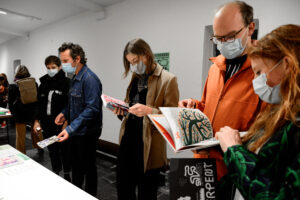
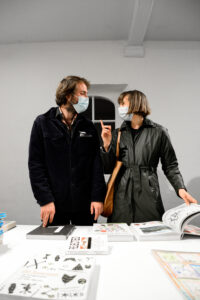
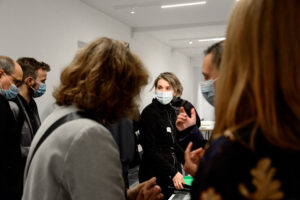
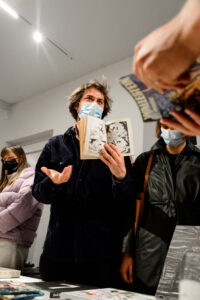
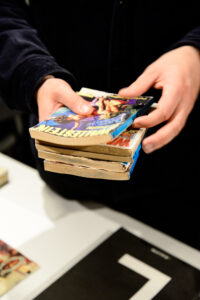
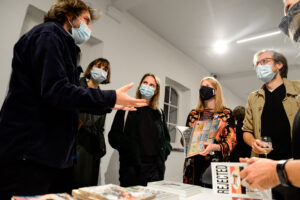
De Koer Resident Azam Masoumzadeh will join us for our first Reading Together to have an informal conversation about her project ‘An archive of imaginary conversations between distant neighbourhoods’, and will tell us about the books that inspire her work.
Reading Together is a Sunday afternoon of browsing and reading through a selection of hard-to-find zines, comics and graphic novels. You are welcome to join us for a coffee or tea, have a chat, meet up with your reading group, or just read in silence and enjoy the atmosphere.
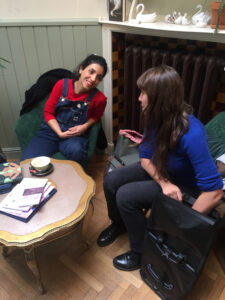
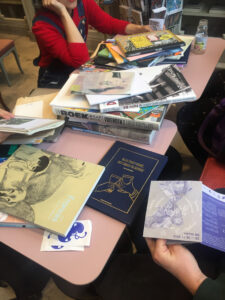
Martha hosted a zine club in collaboration with Muntpunt, wherein we explored mark-making and working with/within the boundaries of random shapes and lines.
Martha Verschaffel creates stories in which images suggest rather than clarify. Her dark and alienating drawings hail from dreams, nightmares and obsessions. Her debut ‘Lily’ was published in 2015 by Bries. She also self-publishes her own zines and illustrated magazines. Martha lives and works in Ghent.
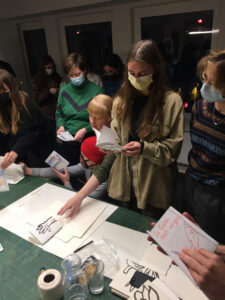
During the finissage of Sabien Clement’s exhibition in Limerick Bookstore, we interviewed her about her latest work ‘Vel’, her way of working and what inspires her. The works she brought were often from other art disciplines like sculpture and photography. Afterwards, the audience was able to ask questions.
Reading Together is a Sunday afternoon (or in this case, Friday evening) of browsing and reading through a selection of hard-to-find zines, comics and graphic novels. You are welcome to join us for a coffee or tea, have a chat, meet up with your reading group, or just read in silence and enjoy the atmosphere. We are located next to Limerick Bookstore, in the coffee shop.
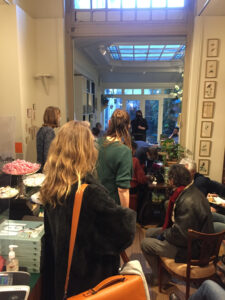
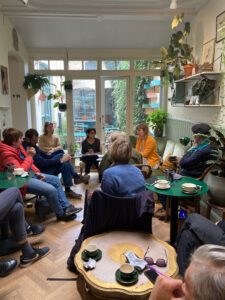
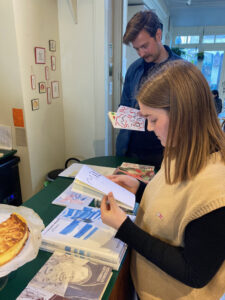
Brussels-based artist and illustrator Dominique Goblet gave a reading about her work for the lecture series KASKlezingen. She is well known for both her graphic novels (Pretending is Lying, Les Hommes Loups, Ostende, …) and her collaborative works (Plus si entente, L’amour dominical). Afterwards, the group went for a drink and got the chance to talk more in-depth.

All good things must come to an end, and our ending took place in the form of a performance, film screening and drinks.We invited artist and musician Sarah Yu Zeebroeck to give a talk about her work and to choose a movie that inspires her.
She chose Through the Olive Trees by Abbas Kiarostami, the closing piece in the Koker Trilogy, a beautiful series wherein the author provides a critical reflection on the film-making process and the relation between life and art, fiction and reality.
After the screening we discussed the past year and what we’ve learned, read and felt while having a drink. It was a pleasure to have you!
